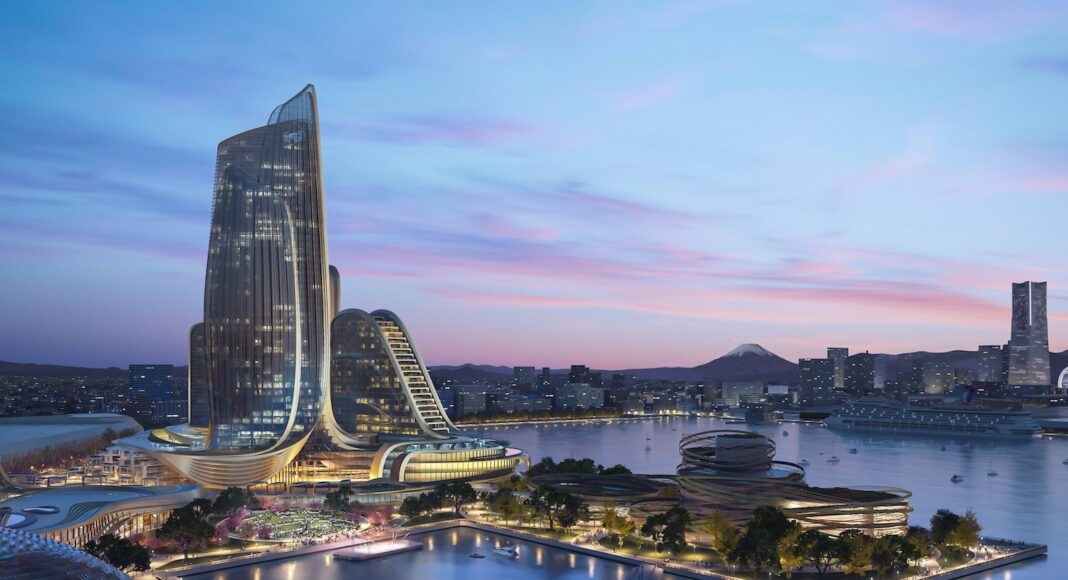Like a delinquent child who refuses to follow the rule book, going astray is more the norm than the exception for the passage of casino gaming in Japan, especially when it comes to politics.
Notwithstanding the nurturing and resources the Japanese government has poured into the process over the past two decades, there has been little reciprocity for the love and attention it received.
The IR (Integrated Resorts) Act is on track to be the oldest alumnus in Japanese legislative history when the first casino finally opens its doors in the country. The current best estimate for the latter is 2028, which would mark 30 years to realize a piece of law from ideation to implementation.
However, by the looks of what’s brewing on the horizon, there may still be some surprises ahead.
We witnessed the self-expulsion of Yokohama in August, which automatically ejected Genting Singapore, Melco Resorts & Entertainment and Sega Sammy from the IR race as it currently stands.
Nagasaki is bracing for a maelstrom in the form of threats of lawsuits from the runner-up bidder accusing the prefectural government of gross improprieties. The situation has deteriorated into a tarring and feathering slugfest that does no favours for either side. Even a sole bidder, and hence winner by default over at Wakayama wasn’t spared, with unfounded accusations slung at Clairvest’s advisor, Bill Weidner, who boasts stellar gaming credentials as the brains behind the global ascension of Las Vegas Sands’ success in Asia. Comparatively to the west, it’s snoozeville at Osaka where MGM Resorts and its partner, ORIX, are filing their fingernails perfectly happily in ennui.
The next two to three months could see more gale force winds passing through in an exciting political calendar with the Liberal Democratic Party presidential election, followed closely by national elections likely in early November.
Sandwiched uncomfortably between is the start of the six-month time window for interested prefectures to submit their IR bids to the national government.
The first test on 29 September won’t be as nerve-wracking with all four declared LDP leadership candidates unlikely to derail the IR train. The brightest prospect for its fortunes lies with Taro Kono, whose Western educational background and international depth augur well with the concept of casino gaming as a form of entertainment. Kono is also the least hawkish of the quartet on his views towards China, whose citizens represent the key customer demographics for Japan’s integrated resorts.
Fumio Kisihida previously visited the integrated resorts in Singapore, whereas Seiko Noda was a one-time leader in the bipartisan IR parliamentary caucus. Sanae Takaichi’s election ticket rides primarily on the endorsement of Shinzo Abe and is expected to endorse the pet policies of the former Prime Minister, the IR Law being pre-eminent among them. Kishida and Takaichi will both be beholden to the largest LDP faction, Seiwa Seisaku Kenkyūkai, for its support if either wins.
Hiroyuki Hosoda, the leader of the faction, is widely acknowledged as the main advocate and conservator for the Japan IR initiative and will expect integrated resorts to be made a priority agenda in return for his bloc’s support.
The early momentum favours Kono, especially given half the votes are coming from the over 1 million rank-and-file LDP members across the country whose choices will track closer to public opinions, which favour Kono. He thus has the best chance of winning through an outright majority, but if no one attains the magic 383-vote figure, a two-way run-off can tip in favour of Kishida because LDP lawmakers’ votes are magnified eightfold in the run-off contest.
Kishida already has his own faction and the Tanigaki faction in the bank and is likely to garner the lion share from the Seiwa faction which formally declared support for both Kishida and Takaichi. Kono is endorsed by younger LDP legislators and the leader of the Ishiba faction but their numbers are small. The leader of his own faction, Taro Aso, left it to faction members to vote freely instead of endorsing their compatriot.
The scenario will play into the hands of ‘Kingmaker’ Toshihiro Nikai, whose faction Kono will need in his camp to make up the deficit for winning the run-off. That of course will bode quite well for Wakayama’s IR aspirations if Nikai cashed in his chips with Kono for a Wakayama IR license.
Regardless, don’t expect any clearer direction for the IR story immediately after the new Prime Minister is crowned because the new incumbent won’t make any bold moves until after the Lower House elections. Barring an unexpected outcome, the LDP is expected to hold on to power and what observers will be keenly watching is the margin of victory.
An increase in seats or retaining the super-majority is an explicit affirmation of the new Prime Minister and signals fewer headwinds in the IR department. But changes in the balance of legislators representing the bidding prefectures may alter the dynamics in the IR host category.
Also, the less than marquee remaining slate of Nagasaki-Osaka-Wakayama host contenders means it is far from a foregone conclusion that the three bidders will automatically be awarded the three licenses. Osaka will pressure for their license in the present six-month window, but brace for one or maybe two licenses kicked down the road to allow for the likes of Tomakomai, Fukuoka, Aichi and Tokyo to enrol in the race.
• Daniel is a former vice president of business development at Resorts World, and a former senior vice president of development for Hard Rock International in Asia.











